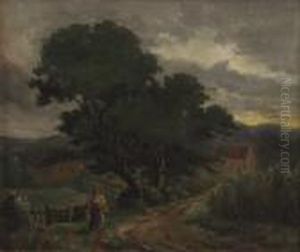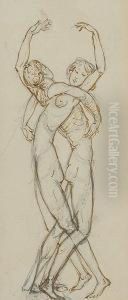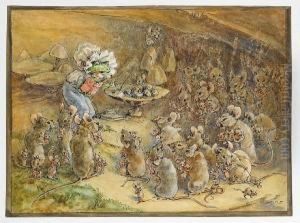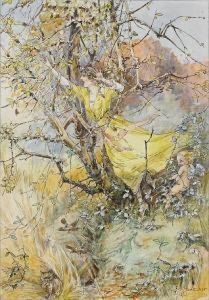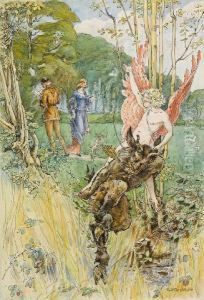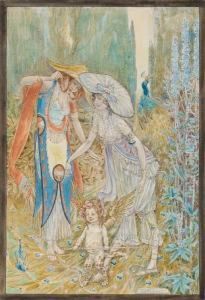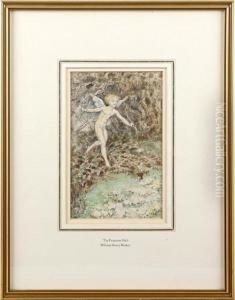William Henry Walker Paintings
William Henry Walker was an American cartoonist and illustrator, born on March 23, 1871, in Charleston, South Carolina. He became known for his work in the field of newspaper comic strips and political cartoons in the early 20th century. Walker's style was characterized by its humor, simplicity of line, and sometimes biting social commentary.
Early in his life, Walker showed a keen interest in drawing and pursued his passion for art by studying at the Pennsylvania Academy of the Fine Arts in Philadelphia. After completing his studies, he began his career as a freelance illustrator, contributing to various publications.
In 1903, Walker started working for 'Life' magazine, a general-interest publication that was popular in the United States at the time. He quickly became one of the magazine's leading cartoonists. His work for 'Life' often satirized the social and political issues of the day, including the actions of politicians, the wealthy elite, and the middle class's manners. Walker's cartoons were known for their sharp wit and the way they reflected the public sentiment.
Apart from 'Life' magazine, Walker contributed to other publications such as 'Harper's Weekly,' where his political cartoons gained him a wider audience. His work also appeared in 'Puck,' another prominent humor magazine of the period.
Throughout his career, William Henry Walker witnessed significant historical events, and his cartoons often provided commentary on issues such as women's suffrage, Prohibition, and World War I. His ability to encapsulate complex social issues into a single, striking image made him a respected figure in the world of cartooning.
Walker remained active as a cartoonist until his death on January 21, 1938. His legacy includes a vast collection of cartoons that continue to be studied for their historical significance and artistic merit. Walker's work is a reminder of the power of political cartoons to shape public opinion and comment on the times in which an artist lives.

